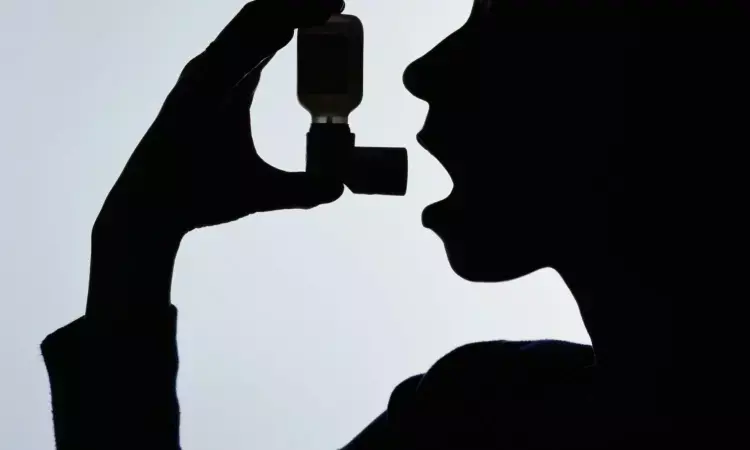- Home
- Medical news & Guidelines
- Anesthesiology
- Cardiology and CTVS
- Critical Care
- Dentistry
- Dermatology
- Diabetes and Endocrinology
- ENT
- Gastroenterology
- Medicine
- Nephrology
- Neurology
- Obstretics-Gynaecology
- Oncology
- Ophthalmology
- Orthopaedics
- Pediatrics-Neonatology
- Psychiatry
- Pulmonology
- Radiology
- Surgery
- Urology
- Laboratory Medicine
- Diet
- Nursing
- Paramedical
- Physiotherapy
- Health news
- Fact Check
- Bone Health Fact Check
- Brain Health Fact Check
- Cancer Related Fact Check
- Child Care Fact Check
- Dental and oral health fact check
- Diabetes and metabolic health fact check
- Diet and Nutrition Fact Check
- Eye and ENT Care Fact Check
- Fitness fact check
- Gut health fact check
- Heart health fact check
- Kidney health fact check
- Medical education fact check
- Men's health fact check
- Respiratory fact check
- Skin and hair care fact check
- Vaccine and Immunization fact check
- Women's health fact check
- AYUSH
- State News
- Andaman and Nicobar Islands
- Andhra Pradesh
- Arunachal Pradesh
- Assam
- Bihar
- Chandigarh
- Chattisgarh
- Dadra and Nagar Haveli
- Daman and Diu
- Delhi
- Goa
- Gujarat
- Haryana
- Himachal Pradesh
- Jammu & Kashmir
- Jharkhand
- Karnataka
- Kerala
- Ladakh
- Lakshadweep
- Madhya Pradesh
- Maharashtra
- Manipur
- Meghalaya
- Mizoram
- Nagaland
- Odisha
- Puducherry
- Punjab
- Rajasthan
- Sikkim
- Tamil Nadu
- Telangana
- Tripura
- Uttar Pradesh
- Uttrakhand
- West Bengal
- Medical Education
- Industry
Buteyko breathing technique effective adjunct in asthma therapy deserving wider attention, suggests study

It has been suggested that non-pharmaceutical approaches, such as the Buteyko breathing technique (BBT), be implemented to support traditional asthma therapy. However, the evidence regarding their effectiveness needs to be more consistent.
A European Journal of Medical Research study has concluded that BBT is clinically effective. Despite the significant reduction of respiratory pharmacotherapy, improved symptom scores and a slight increase in bronchial volume indicate this.
Researchers examined BBT's influence on clinical outcomes and functional parameters to better understand its impact on asthma patients.
Two groups (n = 30 each) of asthma patients were studied for three months. One group received BBT therapy, while the other received the usual treatment (UT) without BBT. Primary outcome was voluntary control pause (CP) after three months, and secondary outcomes included additional breath-hold parameters, FEV1, capnovolumetry, FeNO, ACQ, NQ, and medication use (β2-agonists; inhaled corticosteroids, ICS)
Key findings from the study are:
- CP showed significant time-by-group interaction and main effects for the study group and time.
- ACQ and NQ scores were significantly improved with BBT.
- This was associated with reduced use of β2-agonists and ICS by 20% each.
- In the UT group, None of these effects occurred.
- While FEV1 and the slopes of the capnovolumetric expiratory phases 2 and 3 did not significantly change, the capnovolumetric threshold volume at tidal breathing increased (p < 0.05) with BBT by about 10 mL or 10% in comparison to the baseline. This suggests a larger volume of the central airways.
- No significant changes were seen for FeNO.
BBT showed clinical effectiveness, as evidenced by improved symptom scores and slight increases in bronchial volume. Its well-accepted nature by participants suggests its potential as a supportive tool in asthma therapy, deserving wider attention in clinical practice.
Reference:
Vagedes, Katrin, et al. "Effect of Buteyko Breathing Technique On Clinical and Functional Parameters in Adult Patients With Asthma: a Randomized, Controlled Study." European Journal of Medical Research, vol. 29, no. 1, 2024, p. 42.
BDS, MDS in Periodontics and Implantology
Dr. Aditi Yadav is a BDS, MDS in Periodontics and Implantology. She has a clinical experience of 5 years as a laser dental surgeon. She also has a Diploma in clinical research and pharmacovigilance and is a Certified data scientist. She is currently working as a content developer in e-health services. Dr. Yadav has a keen interest in Medical Journalism and is actively involved in Medical Research writing.
Dr Kamal Kant Kohli-MBBS, DTCD- a chest specialist with more than 30 years of practice and a flair for writing clinical articles, Dr Kamal Kant Kohli joined Medical Dialogues as a Chief Editor of Medical News. Besides writing articles, as an editor, he proofreads and verifies all the medical content published on Medical Dialogues including those coming from journals, studies,medical conferences,guidelines etc. Email: drkohli@medicaldialogues.in. Contact no. 011-43720751


